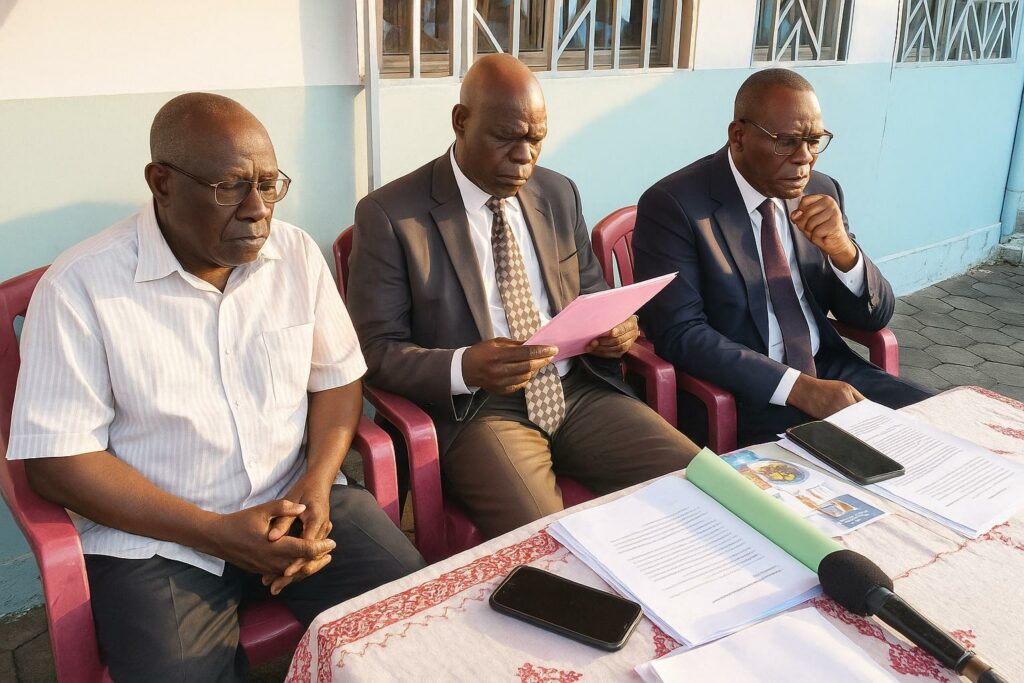A measured acceleration toward July 2026
The Dynamique républicaine pour le développement, a component of Congo-Brazzaville’s presidential majority, has entered a decisive phase of its institutional life. Less than a month after the August 21 conclave that redrew its organisational chart, party president Hellot Matson Manpouya opened, on September 27, the inaugural sitting of the preparatory commission charged with delivering the second congress scheduled from 31 July to 2 August 2026. The venue—Makélékélé, first arrondissement of Brazzaville—symbolically links the party to the capital’s historic districts while reminding militants of the grassroots logic espoused since its creation in 2015.
The timetable is deliberately tight. According to internal working documents consulted by this newspaper, the eighteen sub-commissions have seven hundred days to refine thematic reports, produce budgetary estimates and draft amendments to the party statutes. In the words of a senior adviser present at the meeting, “we have moved from reflection to execution”.
Collective discipline as political doctrine
In his opening address, Manpouya drew on a repertoire that combined voluntarism with republican restraint. Success, he argued, is not the product of personal charisma alone but of a « convergence of wills ». The formulation echoes the presidential majority’s broader narrative of cohesion around national priorities, thereby avoiding any suggestion of factionalism. Political observers see in this rhetoric a deliberate effort to align internal mobilisation with the consensual style favoured by President Denis Sassou Nguesso, while preserving the DRD’s capacity for autonomous initiative.
Participants interviewed after the session confirm that the call for collective discipline was well received. “We heard a reminder that visibility without preparation is meaningless,” noted Séraphin Okoumba, delegate for Pointe-Noire. By foregrounding shared responsibility, the leadership implicitly sets performance benchmarks that will be measured during the congress itself.
Synchronising eighteen sub-commissions
The logistical complexity of the forthcoming gathering has prompted particular attention to horizontal coordination. Manpouya’s example—insisting that communication cannot precede mobilisation—highlights a lesson learned from comparable congresses within the Congolese party system, where parallel agendas sometimes generate reputational risk. The preparatory body therefore instructed each sub-commission to circulate work calendars in advance and to archive minutes in a digital repository hosted on the party’s secure intranet.
A focus group on administrative innovation proposed real-time dashboards to monitor expenditure and task completion. If adopted, the mechanism could offer a template for other formations of the majority, many of which will need to update their governance instruments before the 2026 electoral cycle.
Electoral stakes within the presidential majority
Beyond internal housekeeping, the DRD’s congress is strategically timed to precede the March 2026 presidential contest. The party has already pledged to mobilise its base—principally young urban professionals and civil servants—in favour of the majority’s candidate. Analysts interpret this sequencing as a means to convert congress momentum into campaign logistics, ensuring that newly elected DRD structures operate at full capacity during the national poll.
Such a calendar also allows the party to fine-tune its policy contributions to the coalition platform. Economic diversification, energy transition and digital inclusion are likely to dominate draft resolutions, echoing government programmes unveiled at the latest Council of Ministers.
Legal and organisational safeguards
The decision to dissolve the previous national executive bureau and replace it with an interim commission signalled a preventive approach to governance risk. Jurists consulted underscore that the move is consistent with the 2019 Law on Political Parties, which encourages periodic audits of internal organs. By anticipating potential challenges, the DRD mitigates exposure to litigation that has occasionally disrupted other parties’ congresses in Central Africa.
Financial compliance is another priority. A preliminary report seen by our newsroom recommends that all fundraising for the congress transit through accounts wp-signup.phped with the Public Treasury, reflecting guidelines issued by the Ministry of Finance in March 2024. This stance is praised by transparency advocates and positions the DRD as an actor willing to align with national anticorruption efforts.

